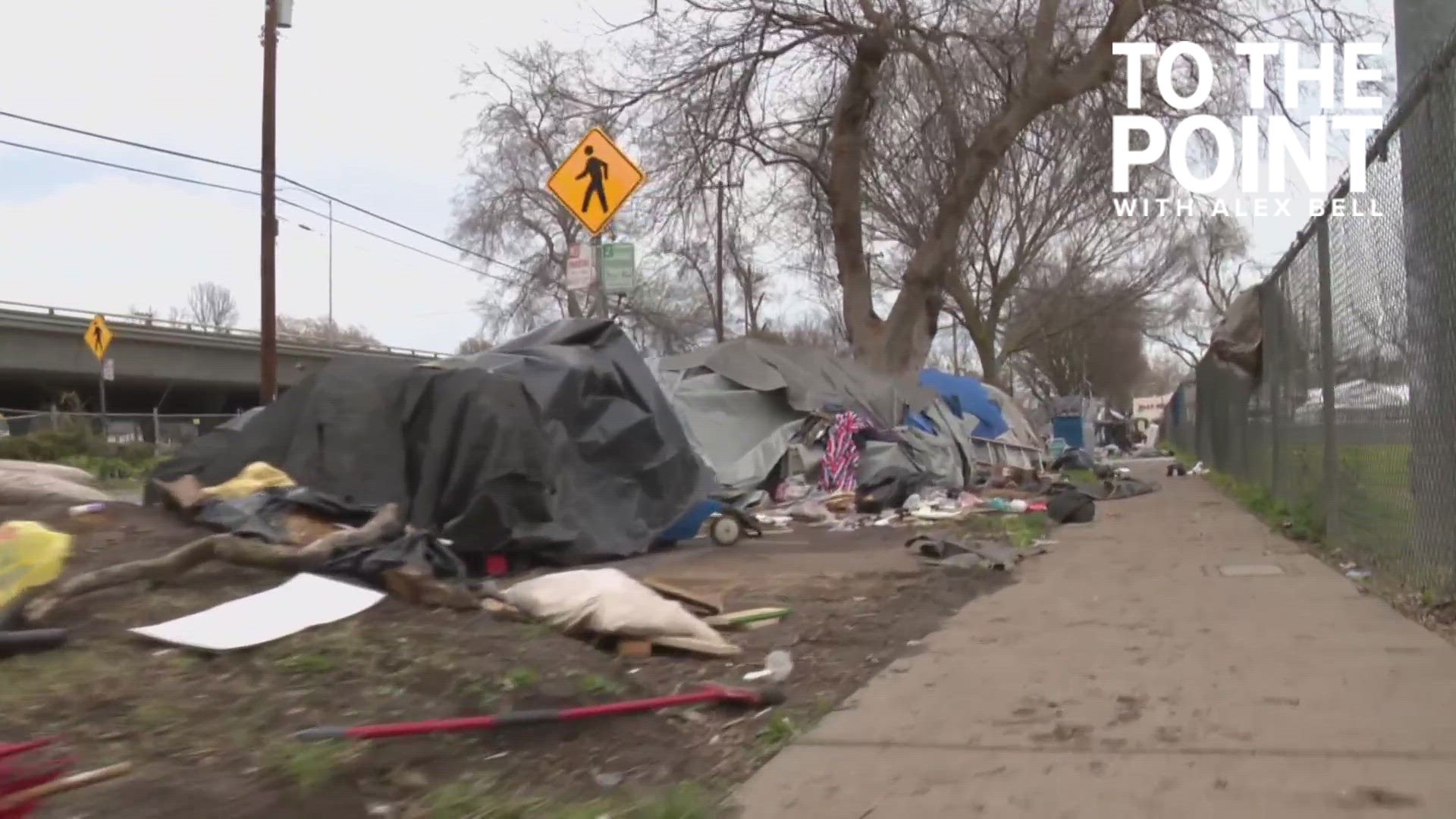SACRAMENTO COUNTY, Calif — As early as this weekend, a controversial plan for homelessness will go into effect that could jail the unhoused. San Diego is calling it Progressive Enforcement, which means jail time is likely if the homeless refuse to accept shelter after three warnings.
"There will be three steps for enforcement. The first step will be an offer of a shelter bed and education of the ordinance. Step two will be an offer of a shelter bed and issuance of a misdemeanor citation. Step three will be an offer of a shelter bed and physical arrest of the person," said Captain Shawn Takeuchi, of the San Diego Police Department, during a city council meeting on June 13.
San Diego Councilmember Stephen Whitburn introduced the ordinance. A spokesperson for his office told ABC10 the city does not have a bed for every person who's homeless, but to be able to enforce the progressive enforcement, they would need them.
"We can work to help people get on their feet, and we can have reasonable regulations on the use and locations of encampments," said Councilmember Whitburn during a city council meeting on June 13.
In Sacramento, there are not enough beds or shelter for the unhoused. The federal ruling, Martin vs Boise, prevents cities from enforcing anti-camping ordinances until there are enough shelter spaces. As for what can be done, Sacramento County Sheriff Jim Cooper expressed what he thinks would be the best start.
"I think for the most severely mentally ill, conservatorship," said Sheriff Cooper during a press conference on July 12.
The sheriff's Homeless Community Outreach Team spoke to almost 200 people over 5 days and only one person accepted the resources provided. While they want something to be done, the sheriff's office notes that jail may not be the best answer.
"For a lot of those folks, jail isn't the right place, but it might be a good stop. It might be a way to again, be an intervention technique," said Sergeant Amar Gandhi.
Still, the sheriff's office says it's keeping an eye on how this plays out in San Diego. As for community advocates like Bob Erlenbusch, he says there could be multiple reasons why anyone would refuse shelter or help.
"They could be extremely claustrophobic. They could not want to separate from their pets. They could not want to separate from a spouse or partner," said Erlenbusch.
A spokesperson for Councilmember Whitburn's office in San Diego says some housing and shelter provided will be an individual, non-congregant situation so people will not be separated from their pets.
WATCH ALSO:

















